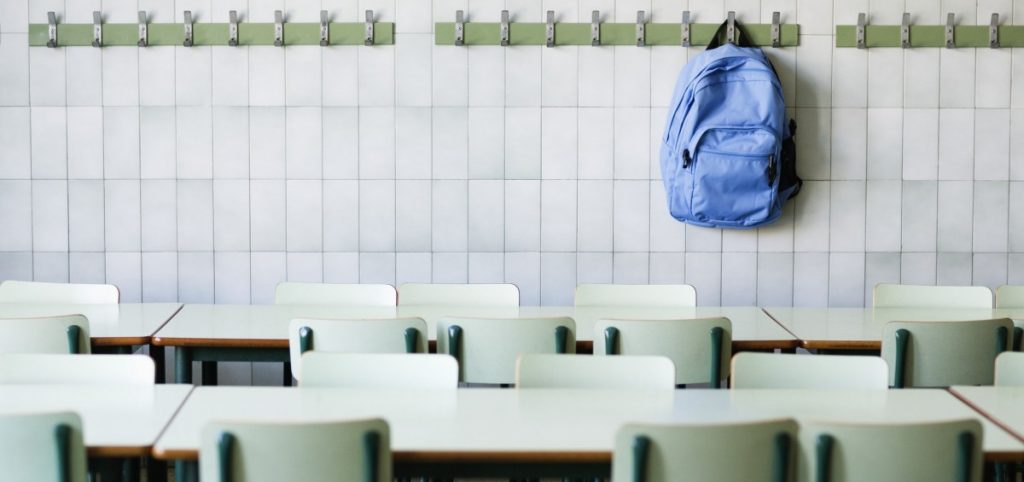News
An Ohio bill would create a pilot programs to pay kids for attending and graduating high school
By: Jo Ingles | Statehouse News Bureau
Posted on:
COLUMBUS, Ohio (Statehouse News Bureau) — Ohio lawmakers are considering a bipartisan bill that would establish two pilot programs to fight truancy and encourage high school graduation. They’d be run in two different schools with truancy problems and low graduation rates. And if those pilot programs prove successful, they could be expanded statewide.
Rep. Dani Isaacsohn (D-Cincinnati), one of the sponsors of the bill, said absenteeism among Ohio’s ninth graders has increased dramatically since before the COVID-19 pandemic.
“We went from 15% pre-pandemic to over 31% in this most recent school year. That’s almost a third of our ninth-graders that spend their first year of high school missing more than ten percent of their school days. This is the number one issue we are facing in education,” Isaacsohn said
Isaacsohn noted the legislature has spent a lot of time debating bills over what should be taught and how it should be taught, but hasn’t addressed this key issue.
“Because it does not matter how qualified a teacher is or what the reading material is if the student is not there to learn. And, my friends, we won’t even be able to argue about bathrooms or controversial subjects if the kids aren’t in the classroom,” Isaacsohn said.

The carrot vs. stick approach to graduating high school
Republican Bill Seitz (R-Cincinnati), the other sponsor of the bill, told the House Primary and Secondary Education Committee that incentives that have been offered to students in schools where attendance and graduation rates are low have not worked.
“So, we’ve tried pizza day and we have tried playground hours and we have tried all kind of foo-foo stuff. It doesn’t seem to work,” Seitz said. “So let us talk about the immediacy of a payment in cash. Cash is king. Cold, hard cash. In God we trust, all others pay cash.”
“You catch more flies with honey than vinegar. That’s what we are trying to do. The stick approach to compel attendance has not worked,” Seitz added. “And the other incentives that we have handed out I guess are not sufficiently good incentives to get people to change their behavior. Maybe the pizza’s not as good as it should be. I don’t know.”
One of Seitz’s Republican colleagues on the committee, Rep. Josh Williams (R-Sylvania), said the issue was important to him because he didn’t finish high school. He later got a GED and went on to get a law degree. Williams questioned why legislators would consider incentives to attend school when state law already requires minors to do that.
“Why are we going to pay kids to follow the law? We have laws in place that say ‘You cannot skip school. You cannot be truant. You can be criminally charged and penalized. Parents, your kids must be enrolled in school. If you don’t enroll your kids in school, you can be charged and you can be penalized,'” Williams said. “Is this going to set a precedent for our young kids as young as kindergarten that we are going to pay you to abide by the laws moving forward? I mean, are we going to get to the point where we are paying rapists not to rape?”
Seitz responded by saying there aren’t enough truant officers to keep up with the number of students who are missing school. Seitz said kids who don’t graduate high school end up costing the state money in other ways, so it makes sense to pay them now versus pay for them later.
“Kids today want, more or less, immediate gratification. You cannot say ‘Well, if you do all of this, we’ll give you a lollipop at the end of the school year.’ The way we have designed this with the $25 monthly cash payment provides a degree of immediacy,” Seitz said.
The bill would set up a pilot project that would focus on kindergartners and ninth-graders in public schools that have high absenteeism and high dropout rates. If it is successful in raising the attendance rate and lowering the number of dropouts, the sponsors said it could be expanded statewide.
A total of $1.5 million has been set aside for the initial pilot project. But the sponsors added the savings in not having to provide extra money for dropout recovery or other interventions could help pay for the program.
This is the first hearing for this bill. Lawmakers have until the end of the year to pass it through both the House and Senate and get it signed by Gov. Mike DeWine.

